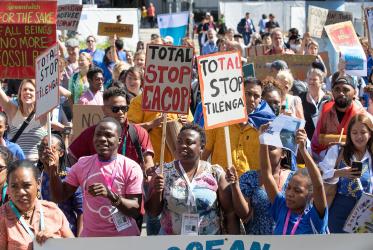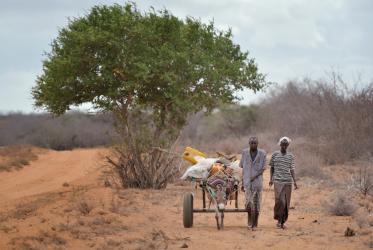Displaying 1 - 20 of 21
ACT Alliance general secretary: “equity is not negotiable”
26 September 2023
Churches respond to Malawi cyclone disaster
29 March 2023
Ukraine: Responding to humanitarian need
08 September 2022
Called to Transformation - Ecumenical Diakonia
09 June 2022
African church leaders train in leadership, diakonia and development
12 November 2021
Churches offer some relief in Kenya’s drought disaster
16 September 2021

















